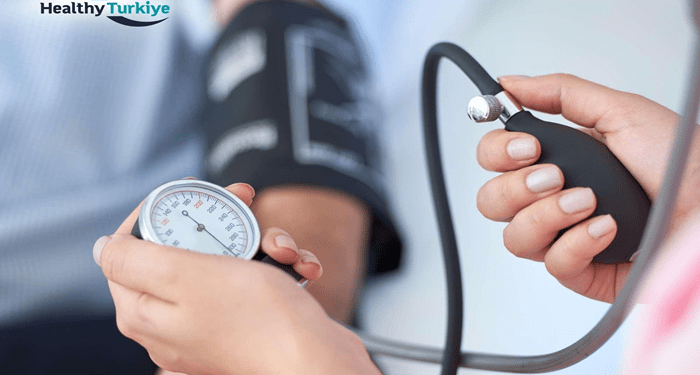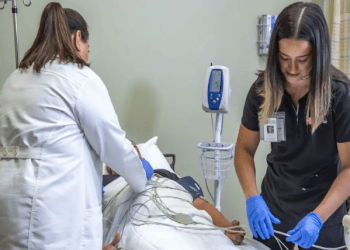Hypertension, commonly known as high blood pressure, is a condition affecting millions of people worldwide, including a significant portion of the population in Turkey. If left untreated, hypertension can lead to severe health issues such as heart disease, stroke, and kidney failure. The good news is that with the right treatment plan and lifestyle changes, hypertension can be managed effectively.
In Turkey, advanced medical options such as hypertension treatment in turkey provide patients with comprehensive care. However, lifestyle changes also play a crucial role in managing this condition. In this article, we will explore the importance of lifestyle changes in hypertension treatment, how Turkish medical institutions integrate these practices into their treatment plans, and what steps you can take to improve your blood pressure and overall health.
Understanding Hypertension and Its Risks
Hypertension is a condition where the blood pressure in the arteries remains persistently elevated. This forces the heart to work harder to pump blood, leading to long-term damage to the arteries and other organs. The risk factors for hypertension include a sedentary lifestyle, poor diet, obesity, smoking, and excessive alcohol consumption. Additionally, stress, genetics, and age also contribute to developing high blood pressure.
If untreated, hypertension can cause:
- Heart attacks and strokes
- Heart failure
- Kidney disease
- Vision loss
- Metabolic syndrome
Given the severe consequences of high blood pressure, patients should not only rely on medical treatment but also adopt necessary lifestyle changes to manage their condition.
The Role of Lifestyle Changes in Hypertension Treatment
While medication is often required to manage hypertension, doctors increasingly emphasize the importance of lifestyle modifications as a first line of defense. In Turkey, healthcare providers focus on a holistic approach to hypertension treatment, combining modern medical techniques with personalized advice on lifestyle changes. These changes can have a profound impact on blood pressure levels and improve overall heart health.
1. Diet and Nutrition
Dietary changes are one of the most impactful ways to control hypertension. In Turkey, many hospitals and clinics provide diet plans specifically designed to lower blood pressure.
DASH Diet: The Dietary Approaches to Stop Hypertension (DASH) diet is widely recommended for hypertension patients. This eating plan emphasizes fruits, vegetables, whole grains, and low-fat dairy products. It limits saturated fats, cholesterol, and sodium. By reducing salt intake and focusing on nutrient-rich foods, the DASH diet helps to lower blood pressure naturally.
Mediterranean Diet: Another popular dietary approach is the Mediterranean diet, which is common in Turkey. This diet focuses on consuming olive oil, fish, legumes, and fresh produce. Its emphasis on healthy fats and minimal processed foods can significantly reduce the risk of cardiovascular diseases linked to high blood pressure.
Reducing Sodium: One of the most critical dietary changes for hypertension patients is lowering sodium intake. High sodium levels cause the body to retain water, increasing the pressure on blood vessels. Doctors in Turkey recommend a maximum of 1,500 mg of sodium per day for those with hypertension.
2. Physical Activity
Regular exercise is essential in managing high blood pressure. Turkish healthcare facilities often include physical activity as part of their hypertension treatment plans, encouraging patients to incorporate at least 30 minutes of moderate exercise daily.
Cardiovascular Exercise: Activities such as walking, swimming, cycling, and jogging help strengthen the heart, allowing it to pump blood more efficiently, which lowers the pressure in the arteries.
Strength Training: Adding resistance exercises to your workout routine can also benefit hypertension patients by improving muscle strength and overall cardiovascular health.
Yoga and Meditation: Yoga and mindfulness practices are increasingly being adopted in Turkey for their ability to reduce stress and promote relaxation. By incorporating these into a daily routine, patients can help lower their blood pressure naturally.
3. Weight Management
Excess weight is a major risk factor for hypertension. Maintaining a healthy weight can significantly reduce blood pressure levels. In Turkish medical centers, patients receive personalized counseling on weight loss strategies that include both diet and exercise. Even a modest weight loss of 5-10% can lead to measurable improvements in blood pressure.
Losing weight reduces the strain on the heart and arteries, making it easier for blood to circulate throughout the body. Weight management programs in Turkey include a balanced approach combining nutrition, physical activity, and behavioral changes to help patients achieve sustainable results.
4. Limiting Alcohol and Caffeine
Both alcohol and caffeine can contribute to high blood pressure. Limiting alcohol consumption to no more than one drink per day for women and two drinks per day for men is essential in managing hypertension. Excessive alcohol consumption can raise blood pressure and interfere with medications prescribed for treatment.
Similarly, limiting caffeine intake from coffee, tea, and energy drinks can help control blood pressure. Some people may be more sensitive to caffeine, and it is important for them to monitor their intake and avoid large amounts, especially in the afternoon or evening.
5. Stress Management
Chronic stress is a known contributor to high blood pressure. Turkish medical professionals understand that hypertension treatment isn’t just physical but also mental. Stress can cause short-term spikes in blood pressure and contribute to unhealthy coping mechanisms such as overeating, drinking, or smoking.
Mindfulness and Relaxation Techniques: Incorporating relaxation techniques, like deep breathing exercises, progressive muscle relaxation, and mindfulness meditation, can help patients lower stress levels and, subsequently, their blood pressure.
Time Management: For some patients, poor time management leads to increased stress and anxiety. Medical professionals in Turkey emphasize the importance of organizing and prioritizing tasks to create a more balanced and less stressful lifestyle.
6. Smoking Cessation
Smoking is a leading cause of high blood pressure and cardiovascular diseases. Quitting smoking can immediately reduce your risk of heart disease and improve your overall health. Hospitals in Turkey offer a range of smoking cessation programs to help patients successfully quit smoking, which is a critical step in managing hypertension.
Nicotine from cigarettes constricts blood vessels, raising blood pressure and heart rate. Long-term smoking damages the blood vessel walls, leading to arteriosclerosis and increased risks of heart attacks and strokes.
Integration of Lifestyle Changes into Medical Treatment in Turkey
Medical centers offering hypertension treatment in Turkey provide a comprehensive approach that includes not only medication but also significant lifestyle modification advice. These centers use state-of-the-art technology to diagnose and monitor hypertension, including 24-hour ambulatory blood pressure monitoring, echocardiography, and blood tests.
Patients receiving care in Turkish hospitals often benefit from one-on-one consultations with dietitians, fitness coaches, and psychologists to help integrate these lifestyle changes into their daily routines. Turkish healthcare providers understand that sustainable lifestyle changes are essential for long-term success in managing high blood pressure, and they support their patients throughout the process.
The Role of ERCP in Hypertension Treatment
Though ERCP in turkey (Endoscopic Retrograde Cholangiopancreatography) is primarily used to treat conditions affecting the liver, bile ducts, and pancreas, there is an indirect connection between these treatments and hypertension. Liver and kidney diseases can contribute to secondary hypertension, which is high blood pressure caused by an underlying condition.
Patients undergoing ERCP for liver or bile duct disorders may also experience improvements in their blood pressure as these underlying conditions are addressed. This highlights the importance of comprehensive healthcare that looks beyond hypertension and addresses all contributing factors, which is a core principle in Turkish medical practices.
Conclusion
Lifestyle changes play a crucial role in the successful management of hypertension. By making adjustments to your diet, increasing physical activity, reducing stress, and quitting smoking, you can significantly lower your blood pressure and improve your heart health. These lifestyle modifications, when combined with medical treatment, offer the most effective way to control hypertension and prevent complications.
At Healthy Türkiye, we provide patients with a holistic approach to hypertension treatment, ensuring that lifestyle changes are integrated with advanced medical care to achieve the best possible outcomes for long-term health and well-being.











